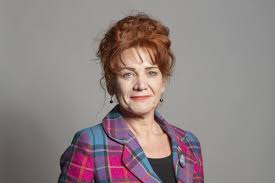
Introduction
Sarah Atherton, the Member of Parliament for Wrexham, has emerged as a significant figure in UK politics since her election in December 2019 as the first female MP for the constituency. Her role holds considerable importance as she represents a shift towards greater female representation in a traditionally male-dominated environment. With growing national interest in issues such as military service, women’s rights, and local governance, Atherton’s political journey is not only inspiring but also reflective of changing demographics in UK leadership.
Background and Political Career
Born and raised in Wrexham, Atherton’s professional background spans across healthcare and the military, having served in the armed forces before entering politics. This unique perspective shapes her policy priorities, particularly in defence and veterans’ affairs. Since taking office, Atherton has focused on key issues affecting her constituents, including economic recovery post-COVID-19, education, and healthcare improvements. Her constituency’s needs are diverse, and Atherton has committed to ensuring that local voices are heard in Westminster.
Recent Legislative Efforts
In recent months, Atherton has been an active participant in parliamentary debates surrounding vital issues such as the impact of the cost-of-living crisis on families in Wrexham. She has advocated for measures that support vulnerable communities and has called for increased funding for local services. Furthermore, her efforts to highlight the importance of mental health services resonate deeply, as they have become particularly crucial during the pandemic’s aftermath. Atherton’s contributions are aimed at ensuring that mental health support becomes a priority in local and national budgets.
Community Engagement and Public Response
Atherton has also made strides in community engagement, regularly holding surgeries for constituents to voice their concerns and feedback. Her approachability has increased public trust and encourages political participation among younger demographics. Surveys indicate a rising approval rating among constituents, reflecting a desire for connection and effective representation in local politics.
Conclusion
As Sarah Atherton continues to navigate her role as an MP, her impact on UK politics is becoming increasingly evident. With the 2024 elections approaching, her influence and pioneering efforts signal a hopeful shift towards a more inclusive political landscape. As more women become involved in politics, Atherton’s journey serves as both a precedent and an inspiration for future generations. The significance of her leadership extends beyond Wrexham, embodying a national movement towards gender equality in political representation. As such, Atherton’s political career will be watched closely, both for her initiatives and the broader changes she may inspire in UK governance.
You may also like

Understanding the Current Political Landscape in the UK

Boris Johnson: A Look at His Current Political Landscape
